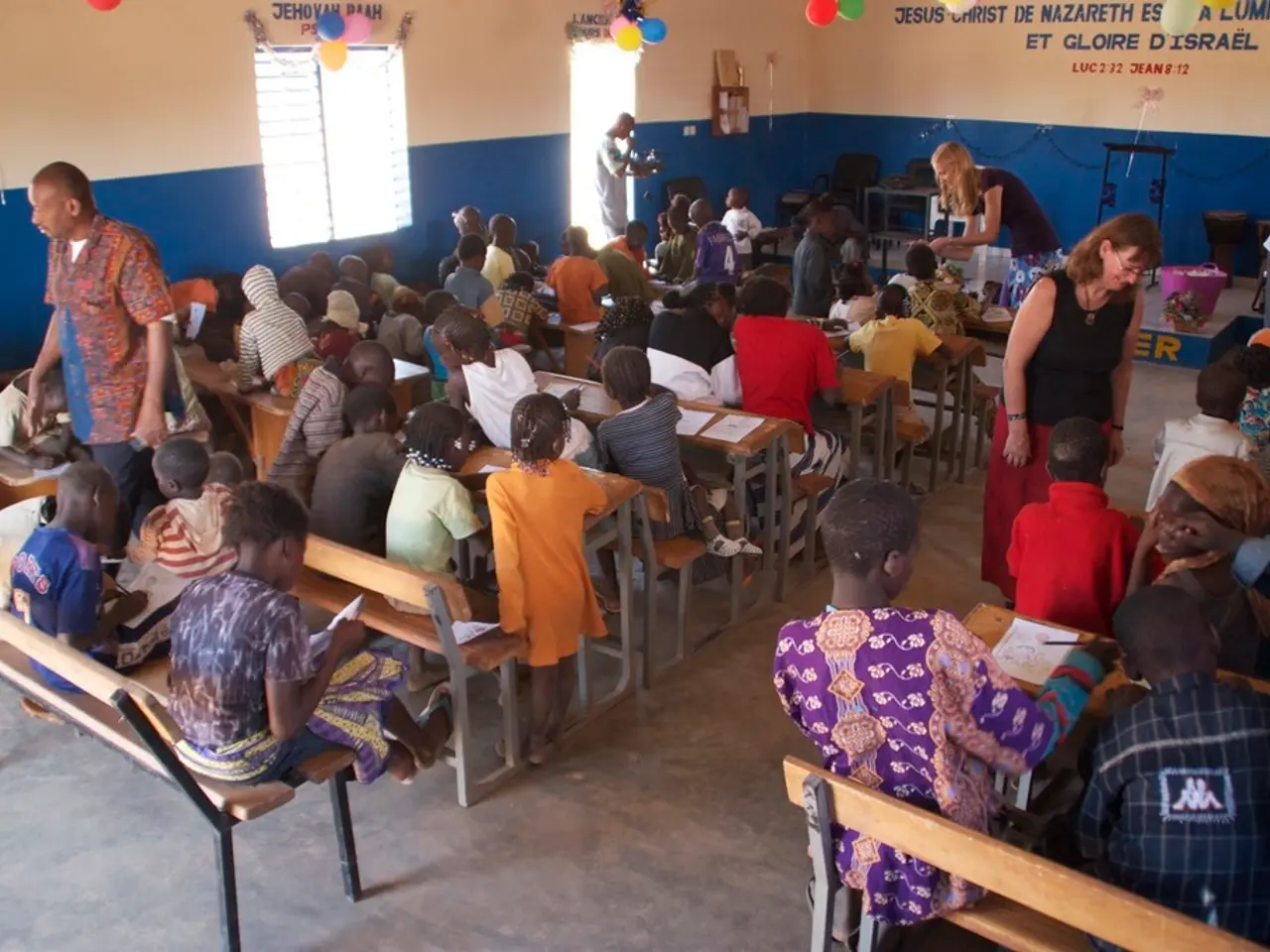Techniques for Successfully Handling Childhood Anxiety
In a world where children face various challenges, managing anxiety is a crucial aspect of their overall well-being. Here's a guide for parents on effective strategies to help their children cope with anxiety.
Creating a supportive environment is the first step. Establishing predictable routines and filtering media exposure can provide a sense of security and stability. By doing so, children feel more confident and prepared for what lies ahead.
Teaching coping skills is another essential part of the process. Mindfulness and breathing exercises, regular physical activity, and creative outlets can help reduce anxiety levels and provide healthy distractions.
Emotional support and open communication are also vital. Acknowledging children's fears, regularly checking in on their feelings, and modelling your own coping mechanisms can help build trust and openness.
Managing anxiety situations requires staying calm and composed, planning for "worry time", and seeking professional help when needed. If anxiety persists or significantly interferes with daily life, consulting a mental health professional may be beneficial. Cognitive Behavioral Therapy (CBT) is a common and effective treatment for childhood anxiety.
Schools play a key role in helping anxious students by teaching coping skills, offering support, and building good relationships with families and teachers. Schools can also implement strategies like exposure-response therapy (ERP) and activities like yoga to help with anxiety and overall well-being.
When to seek professional help includes if anxiety affects a child's daily life or how they feel, if they can't do things they want to because of anxiety, if their mood is really down for more than two weeks, or if they have physical issues like headaches or trouble breathing.
Handling school anxiety needs a team effort from the child, parents, teachers, and mental health experts. Effective communication strategies include asking open-ended questions, listening well, validating their feelings, and using positive language.
Positive reinforcement is key in managing childhood anxiety. Celebrating small victories, rewarding bravery and effort, and implementing positive self-talk techniques can help kids feel strong and accomplished, improving their ability to deal with anxiety.
Eating well is another important factor. Starting the day with protein, eating whole grains, and drinking enough water can contribute to a child's overall mental and physical health. It's also wise to avoid foods that can make anxiety worse, such as alcohol, caffeine, and certain additives.
Lastly, maintaining healthy sleep habits and regular routines is key to handling anxiety in kids. Parental self-care while supporting anxious children is vital. Parents should focus on healthy eating and meal planning to help their kids feel better.
By implementing these strategies, parents can help their children develop resilience and manage anxiety effectively. Good communication and a partnership between parents, teachers, and mental health experts ensures a child's needs are met and their anxiety is managed at school.
Encouraging social skills and friendships can assist children in developing a sense of respect and belonging, which can further contribute to their ability to cope with anxiety.
Incorporating discussions about equality and its importance in social interactions can help children understand that everyone goes through challenges and fosters empathy, which can aid in managing anxiety.
Promoting science education can provide children with a greater understanding of the human body, mental health, and the benefits of various coping mechanisms, which can be useful when dealing with anxiety.
It's essential for parents to model positive mental health practices and seek help when needed to ensure they're equipped with the skills to effectively guide their children through health-and-wellness challenges, including anxiety.




